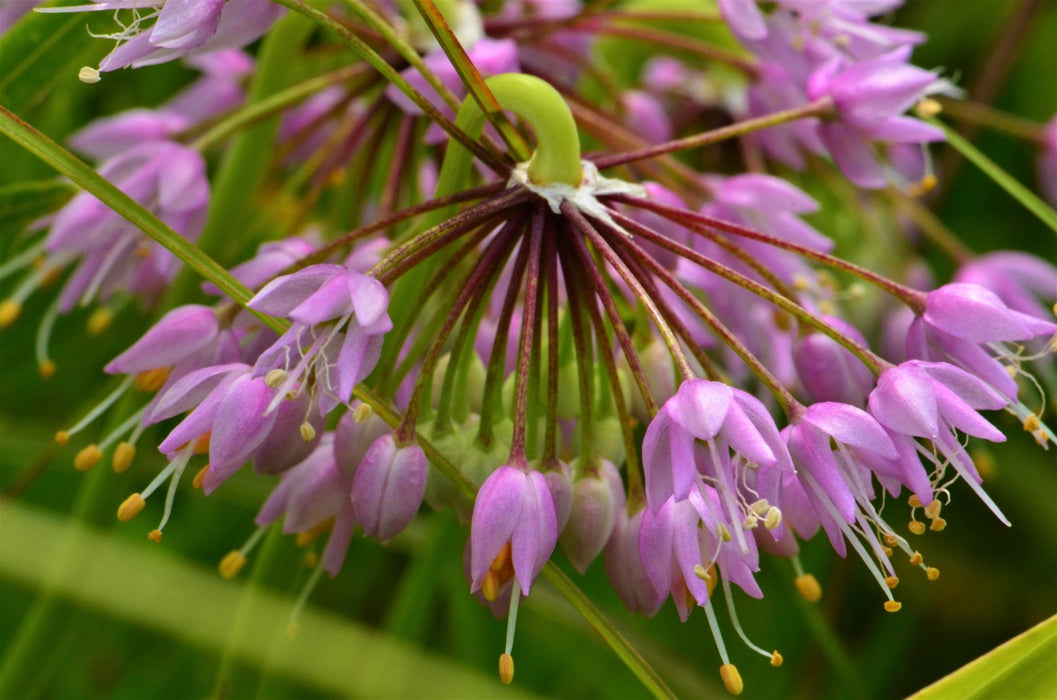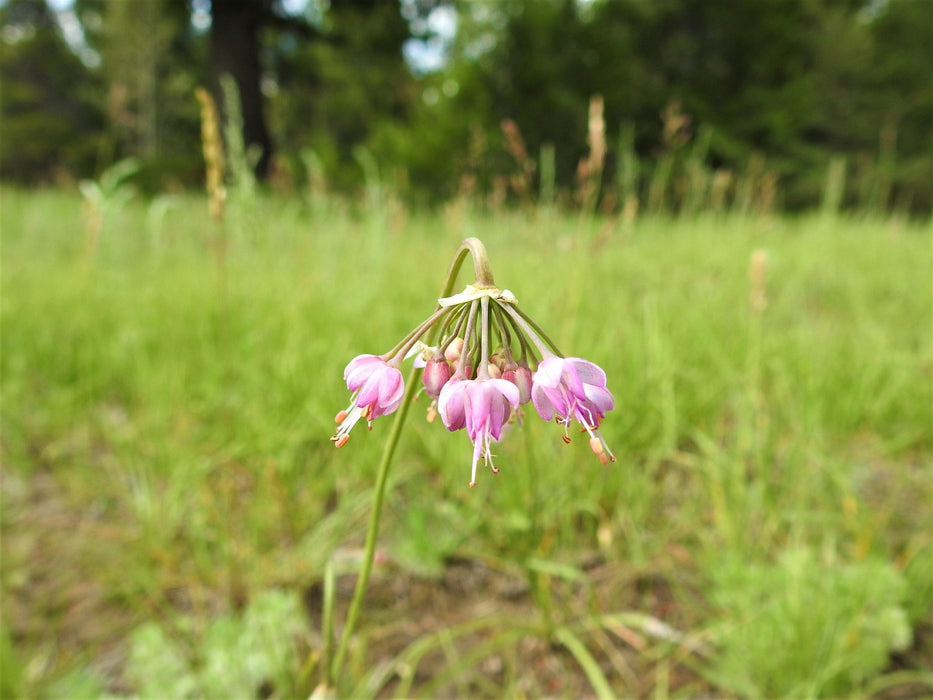
Nodding Pink Onion Seeds (Allium cernuum)
A beautiful, long-lived survivor plant for the toughest sites.
This true onion (yes, you can eat it), has an amazing ability to grow in some of the toughest sites we've seen: pure gravel and sand, as well as heavy clay. It's a great rock garden plant, and better yet, deer leave it alone. We even grow this around our house in containers in full sun, forgetting to water it for months at a time, and yet it gracefully continues to bloom faithfully year after year in mid-summer.
Like other wild Alliums, nodding pink onion forms vegetative offsets that can be dug up and divided to create more plants. In fact, like camas, the more you dig and re-plant nodding pink onion, the better it tends to do. While the plants are slow to mature, after several years they begin to form multi-stemmed colonies, a sure sign they are ready to dig and divide.
We find this an easy plant to grow from seed when it is sown in trays in the fall, then left outside all winter exposed to the elements. The new tiny shoots emerge in early spring, and are best kept in containers for a few seasons until they can hold their own around other plants. (Because the initial shoots are so small, we don't recommend direct planting this in a seed mix, or sowing where the seedlings will have heavy competition from other plants).
Nodding pink onion has an amazingly wide native range, occurring across much of temperate North America. Over this range white, pink, and purple flowered forms of it can be found, with ours tending toward the latter. These flowers are readily visited by various bumble bees, small Halictid sweat bees, and various syrphid flies.
This has been a challenging plant for us to reliably harvest seed from due to variable seed ripening, and a fast loss of ripe seed, but we think it is worth the effort. In the past this was a common species in some of our garry oak savannahs, coastal balds and back dunes, and glacial till prairies. It deserves a renewed place in our landscapes today.
Approximately 100 seeds - 0.5 grams


